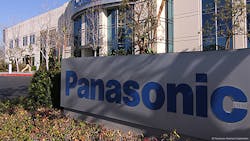Panasonic Corp. will pay about $280 million to resolve U.S. allegations that executives at its in-flight-entertainment unit improperly hid payments to consultants in the Middle East and Asia, some of whom did little or no work for the company.
The Panasonic parent company, in a settlement announced Monday, will pay $143 million in disgorgement to the Securities and Exchange Commission, while Panasonic Avionics Corp. agreed to pay about $137 million in penalties to the Justice Department for violations of the accounting provisions of the Foreign Corrupt Practices Act.
In addition, Panasonic Avionics, based in Lake Forest, Calif., entered into a deferred-prosecution agreement filed Monday alongside a criminal information in Washington federal court.
The settlement on Monday ranks among the largest corporate FCPA resolutions under the Trump administration. In September, Telia Company AB agreed to pay penalties of at least $965 million to U.S. and international authorities to resolve a long-running investigation into corrupt payments involving telecom contracts in Uzbekistan.
In December, Keppel Offshore & Marine Ltd. agreed to pay $422 million to end a U.S. bribery probe into illegal payments to officials at Petroleo Brasileiro SA, Brazil’s state-owned oil company, and to the then-governing political party.
'Distorted' Records
Unlike Telia and Keppel, the Panasonic settlement with the Justice Department doesn’t allege actual bribing of a foreign official, though the SEC did accuse the company of bribery. The case is focused on the payments to supposed consultants, at least one of whom was a former foreign official who did little or no work for the company. Those payments were then improperly recorded in the company’s regulatory filings, the government said.
“When Panasonic Avionics Corporation caused its publicly traded parent company to falsify its books and records, it distorted the information available to legitimate investors,” acting Assistant Attorney General John Cronan said in a written statement.
U.S. prosecutors accused Panasonic Avionics of engaging in several schemes, running from 2007 to 2016, to falsely record payments to sales agents and a former foreign official as legitimate consulting expenses. In one scheme, which ran for nearly a decade, Panasonic Avionics hid more than $7 million in payments to sales agents in Asia, some of whom didn’t pass due diligence checks, according to prosecutors.
Mideast Airline
In July 2007, Panasonic Avionics executives moved to hire a foreign official as a consultant at the same time that official was negotiating a contract amendment between a Middle East airline and the company that resulted in more than $353 million in revenue to Panasonic. The official, who was ultimately hired by Panasonic Avionics, did little work over the next six years while receiving $875,000 in compensation, the filing says.
Many of these payments were made through an account overseen solely by one senior executive without any significant oversight by others at the company, according to prosecutors.
“We are pleased to have resolved these investigations,” Hideo Nakano, the chief executive officer of Panasonic Avionics, said in a statement. “We have taken extensive steps over the past few years to strengthen Panasonic Avionics’ compliance programs and internal controls, and we welcome an independent compliance monitor to assess our progress.”
By Tom Schoenberg
About the Author
Bloomberg
Licensed content from Bloomberg, copyright 2016.
